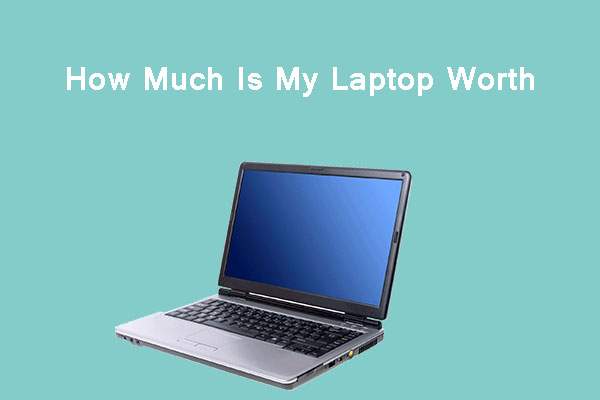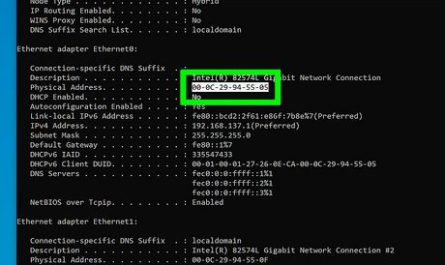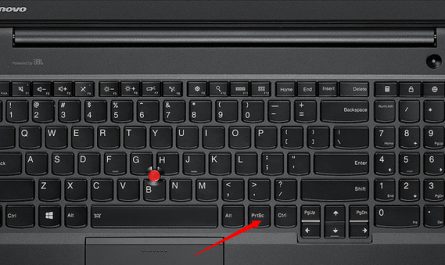So, you’re thinking, “How much is my laptop actually worth?” Maybe you want to upgrade, or perhaps you just want to clear some clutter and get some cash back. It’s a question many of us face but figuring it out isn’t always straightforward. You want a fair price, but where do you start? Don’t worry — I’ve got you covered with a step-by-step guide to help you understand how to price your laptop accurately, what affects its value, and where to sell it for the best return.
Let’s dive in!
Step 1: How Do I Find the Current Market Value of My Laptop?
Alright, first things first — learning the going rate for your laptop is essential. But it’s not like you can just plug your model into a calculator and get a price. Here’s what I suggest:
Check Online Marketplaces
Start by searching for your exact laptop model on popular selling platforms like eBay, Amazon (used section), Craigslist, or Facebook Marketplace. Look at listings similar to yours — same specs, condition, and age. This gives you a ballpark of what sellers are asking.
For example, if you’ve got a 2018 MacBook Pro 13-inch with 16GB RAM and 256GB SSD, you’d search “2018 MacBook Pro 13-inch 16GB 256GB SSD used.” Scan the results and note the prices of laptops in good condition.
Make sure to filter out listings that are new or have damaged devices. You want apples-to-apples comparisons.
Use Laptop Resale Price Estimators
Some websites offer free laptop trade-in value calculators or resale estimators. For instance, Gazelle and Decluttr allow you to input your laptop’s details and get an estimated trade-in price. These estimates often reflect realistic offers rather than ideal listing prices.
However, keep in mind that trade-in sites typically offer less money than selling directly because they need to resell and make profit.
Check Recent Completed Sales
On platforms like eBay, you can filter by sold listings to see what buyers actually paid, not just what sellers asked. This is a goldmine for accurate pricing info.
Bonus Tip:
If you’re unsure about your exact model number, you can usually find it in your laptop’s system information or on a sticker on the bottom of the device. This helps you avoid pricing errors.
Step 2: What Factors Affect the Resale Value of a Laptop?
So now you’ve got a rough idea of the going prices. But why do two laptops that look similar sometimes sell for wildly different amounts? Let’s break down the key factors that drive laptop resale value.
1. Age and Model
Newer laptops usually fetch higher prices, right? That’s generally true. But it’s not just the age — the model matters too. A 3-year-old high-end Dell XPS might be worth more than a 1-year-old budget Chromebook.
Think of it like cars — a used Tesla Model 3 holds value better than a used economy sedan from the same year.
2. Condition
This one’s a no-brainer but often overlooked. Scratches, dents, keyboard wear, screen damage, or battery life can tank your price. Buyers want something that looks and feels well cared for.
Tip: Take clear photos and be honest about any defects. Surprises lead to returns or lowball offers.
3. Specifications
Here’s where it gets tricky if you’re not a tech geek. Specs like processor speed, RAM size, storage type, and graphics capability hugely influence price. More on that later!
4. Operating System & Software
If your laptop runs the latest OS version and comes with useful pre-installed software or licenses, you might get a bit more. For example, Windows laptops with a legit activated license can be more appealing.
5. Battery Health
Laptop batteries degrade over time. If your battery only lasts 1 hour instead of the usual 6, expect a price hit. Some buyers factor in the cost of replacement when making offers.
6. Accessories and Original Packaging
Including original chargers, boxes, manuals, or cases can bump up the price slightly. It shows the device was well cared for.
7. Market Demand
If your laptop is from a popular brand or model in high demand (like MacBooks or gaming laptops), you’ll likely get a better resale value. Niche laptops or outdated models aren’t as sought after.
Step 3: How Do Laptop Specifications Influence Its Worth?
Let’s zoom in on specs because this is where most sellers get confused. You’ve probably heard terms like RAM, processor, and SSD thrown around, but how do these affect your laptop’s value?
Processor (CPU)
The CPU is the brain of your laptop. Newer and faster processors mean smoother and faster performance, raising the laptop’s value. For example:
- Intel Core i7 or i9 CPUs are usually more valuable than Core i3 or older generations.
- AMD Ryzen 5 or Ryzen 7 processors typically command higher prices than budget options.
If your laptop has an older or budget processor, it’ll lower the price.
RAM (Memory)
RAM impacts how many apps your laptop can handle at once. More is generally better.
- 8GB RAM is often considered the minimum for smooth multitasking.
- 16GB or more is great for power users and gamers, which increases the laptop’s worth.
- Less than 4GB RAM might make your laptop nearly obsolete for modern use.
Storage Type and Size
There are two main types of storage: HDD (hard disk drive) and SSD (solid-state drive).
- SSDs are faster and more reliable. Laptops with SSDs usually have higher resale value.
- HDDs are slower and bulkier, so those laptops sell for less.
Also, larger storage space (like 512GB or 1TB) fetches better prices than 128GB or 256GB.
Graphics Card (GPU)
For gamers, video editors, or designers, a dedicated graphics card increases value significantly.
- Laptops with NVIDIA GeForce or AMD Radeon GPUs are worth more.
- Integrated graphics (built into the CPU) lower value for those users.
Display Quality
Higher resolution screens (like Full HD or 4K), touchscreen capability, or better color accuracy boost your laptop’s worth.
Step 4: Where Can I Sell My Laptop for the Best Price?
Here’s the million-dollar question! You want to get the most cash for your laptop without endless hassle. Below are some popular options with pros and cons.
| Selling Option | Pros | Cons |
|---|---|---|
| eBay | Access to huge buyer pool; can auction for max price | Fees can be high; shipping responsibility |
| Facebook Marketplace | No fees; local buyers; easy communication | Safety concerns with meeting strangers; limited buyer reach |
| Craigslist | No fees; local cash deals | Scams possible; limited buyer pool |
| Trade-in Sites (Gazelle, Decluttr) | Quick, hassle-free; instant quotes | Lower payouts compared to direct sale |
| Specialized Laptop Resellers | May offer fair price; some take care of refurbishing | May take longer; prices vary |
Tips for Selling
- Take great pictures: Show every angle and any defects.
- Be honest: Describe condition accurately to avoid disputes.
- Set a realistic price: Based on your market research.
- Consider timing: Selling just before back-to-school season or holidays can get higher prices.
For example, last year I sold my 2017 MacBook Air on eBay for $350 after researching similar sales and setting a reasonable starting bid. It sold in 3 days with no haggling.
Bonus: Frequently Asked Questions (FAQs)
Q: Should I wipe my laptop before selling?
Yes! Always factory reset your laptop and remove personal data. It protects your privacy and gives buyers confidence.
Q: How much will battery health affect my price?
A battery that lasts less than half the original capacity can reduce value by up to 20%, says some sellers. If replacement costs are high, buyers factor that in.
Q: Can software upgrades increase my laptop’s value?
Sometimes. Updating to the latest OS is good. Including licensed software like Microsoft Office can also boost value.
Final Thoughts: Pricing Your Laptop With Confidence
Figuring out how much your laptop is worth doesn’t have to be stressful. By checking current listings, understanding what drives value, and choosing the right place to sell, you’ll get a fair price without the guesswork.
Remember: be honest about your laptop’s condition, know your specs, and research market trends. And don’t forget — it’s okay if you don’t get the original price back. Laptops depreciate fast, but a little effort can mean a decent return.
Now, what are you waiting for? Go check those listings and get ready to turn your laptop into cash!
References
- According to eBay Sold Listings (https://www.ebay.com/help/selling/sold-items?id=4128), checking sold listings is the best way to see actual sale prices for used electronics.
- According to Gazelle Trade-In Calculator (https://www.gazelle.com/laptop-trade-in), trade-in sites offer instant pricing but usually below market value.
- According to Battery University (https://batteryuniversity.com/article/bu-808-how-to-prolong-lithium-based-batteries), battery health significantly affects device performance and resale value.
- According to PCMag’s Guide to Selling Your Laptop (https://www.pcmag.com/picks/best-sites-to-sell-your-used-laptop), marketplaces like eBay and Facebook Marketplace generally provide the best returns for private sellers.
Feel free to ask if you want me to help with pricing your specific laptop model!




